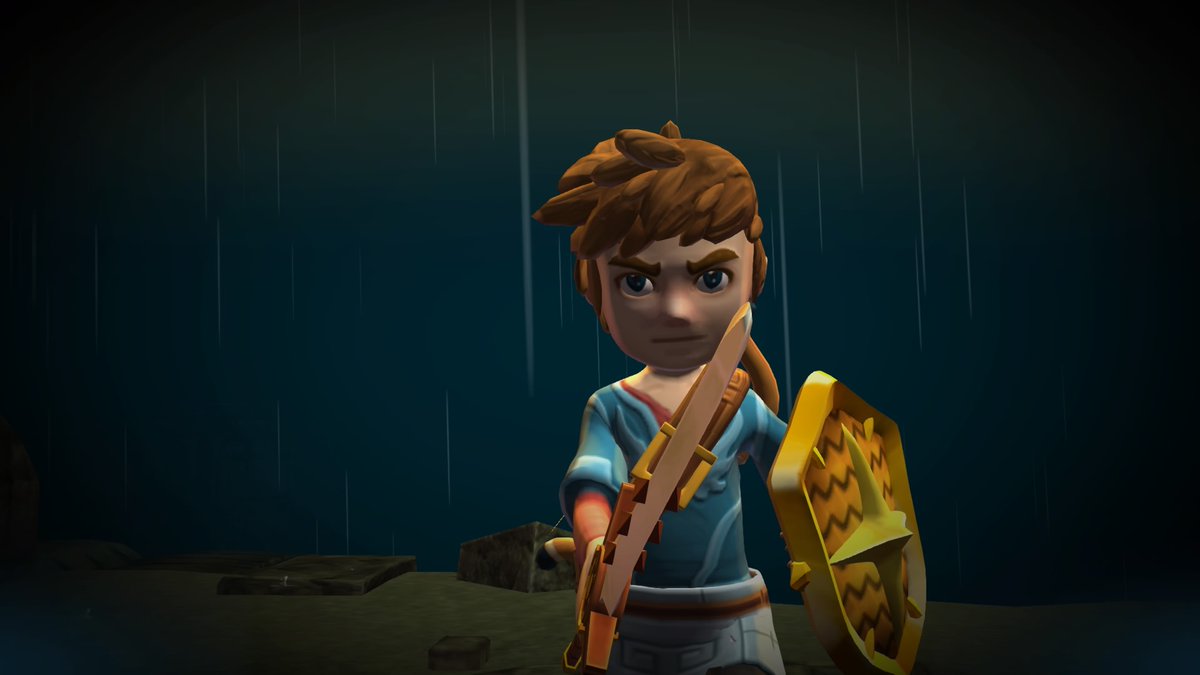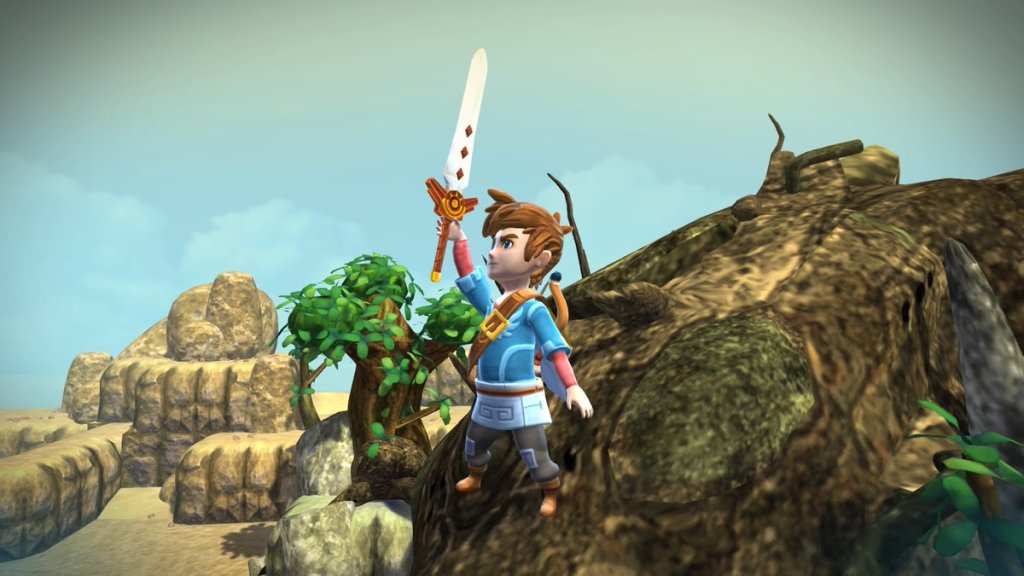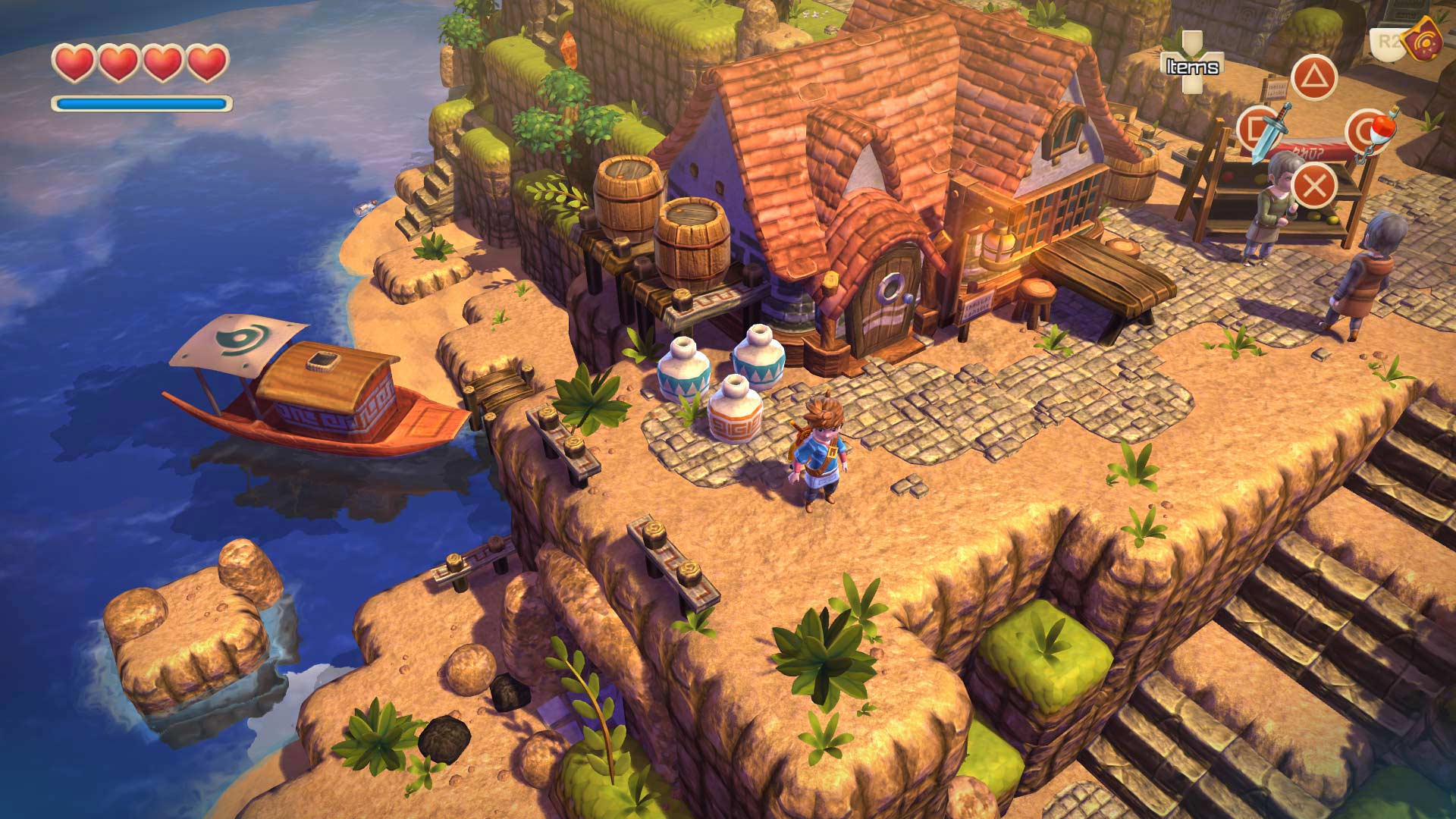
Like a lot of other gamers I absolutely adore The Legend of Zelda series. I loved exploring the rich worlds, making my way through dungeons, and solving difficult puzzles. That’s why I was so excited to play Oceanhorn: Monster of Uncharted Seas, which is an indie game that is clearly inspired by Nintendo’s monumental series. If there was one critique I had against Zelda it was that it often played things too safe and became all too formulaic, so I was hoping to get some fresh ideas out of this independent offering.
To be blunt, if anyone is looking for fresh ideas they won’t find them here. This is very much a top-down Zelda game with nothing new to offer. Even its aesthetic and world feels ripped from Wind Waker, as it has the player sail from island to island in a red boat. Without any original ideas to hang its hat on, Oceanhorn has to rely on how good of an imitation it is of one of gaming’s greatest series.
That is a really difficult task to achieve for any developer (be it a AAA studio or a small team), and sadly Monster of Uncharted Seas provides a lacking imitation. It all comes across as a fan fiction story that had a lot of work put into it, but clearly lacks the polish and knowledge to make something as special as the original works. The disappointment manifests itself in the gameplay, which looks like Zelda, but fails to actually feel like it.
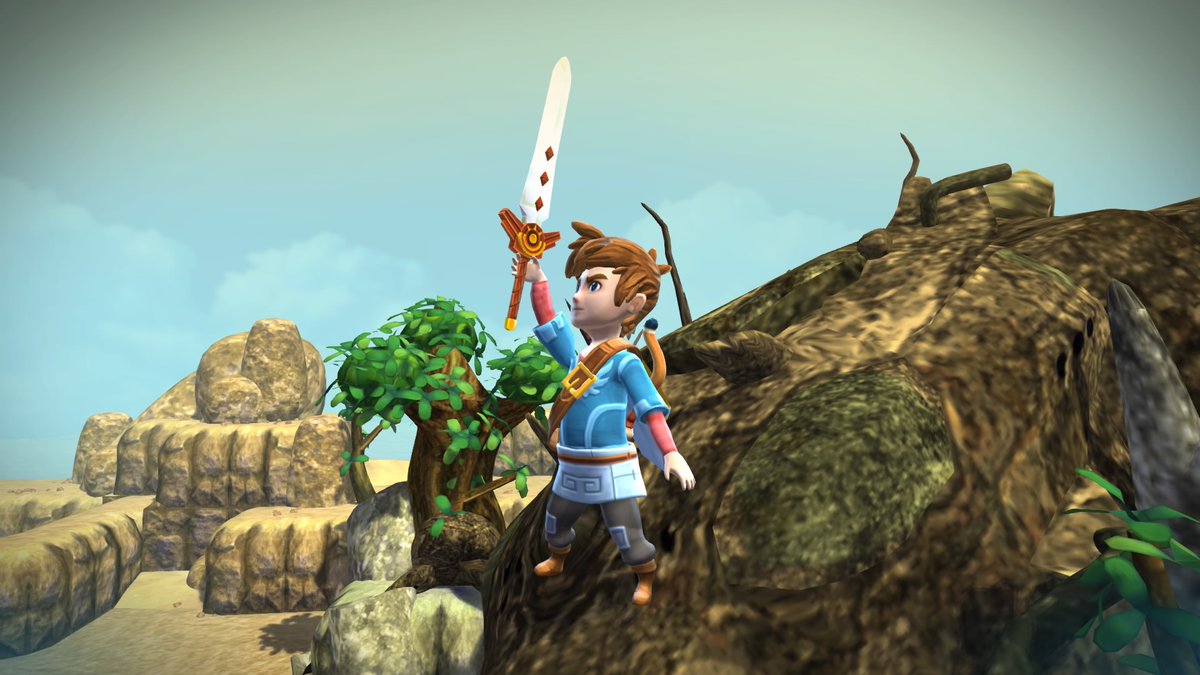
Everything from the combat to just general movement feels clunky in Oceanhorn. Despite brandishing a long sword, the young hero has a short reach that threw me off at first. I eventually got used to it, but I definitely spent a lot of time early on swiping thin air instead of enemies. Once I understood the distance the combat just felt boring, as all it required me to do is to hold my shield up in order to deflect attacks and then counter with offense once they were staggered. There is no timing involved, just walk around with your shield up at all times and that will easily get you the advantage on every enemy encounter.
This simplicity is probably due to Oceanhorn‘s mobile origins. Considering players had to use a touchscreen to control both the character and to pull off attacks, it makes sense that it wouldn’t get too complex. That is perfectly fine on iPad, but when using a DualShock 4 to conduct the action it just feels shallow.
A larger issue than the boring combat is that the game’s levels are designed with verticality in mind. Each island has the player dropping off edges to reach other platforms, and each area is almost a labyrinth in itself. What’s frustrating is that the character can only drop off a cliff if the fall isn’t deemed too much. I often found myself inches away from where I needed to be, but I couldn’t get there because the game wouldn’t allow me to jump down. If it was something like a 10-foot drop I could understand, but the game isn’t even consistent with this idea. It often had my character dropping down larger distances than it had blocked elsewhere, it makes little sense and there just isn’t any logic to the exploration.
Best Imitation of Myself
While there are a bunch of islands to explore, Oceanhorn is a pretty straightforward affair. I was never lost as to where to go, as the game was constantly telling me where to go and what to do next. That would’ve normally had bugged me, but considering how little I enjoyed exploring each island I was glad that I didn’t have to stumble around lost.
There are three main dungeons that need to be explored, and the game builds up to a boss fight against Oceanhorn, which is a robot fish monster or something. I was bored by most of the text, the dry lore and wooden voice acting that would hammer it home. It follows the Zelda formula devoutly, as new abilities are given out mid-dungeon and players then have to use those skills to complete it. It’s a satisfying formula, but in a really underwhelming wrapping.
Despite Oceanhorn only taking around nine hours for me to complete, it started to feel really sad about halfway through. It was the moment where I had discovered a water cave filled with Zora (or Gillfolk as they are called here) that really stood out. This came after an awful fetch quest where I had to transport a jar of honey from one island to another, and I was rewarded with the developer failing to create anything unique. The lack of anything original was so disappointing, and it was only fitting that Oceanhorn would have also look to imitate Zelda‘s terrible fetch quests as well.
Even stuff I was initially impressed with began to fade during my playthrough of Monster of Uncharted Seas. From a graphics standpoint, I loved the island aesthetic, and the game generally looked good when the camera is top-down. The problem is that when the game has cutscenes, it shows the character models up-close and it looks like something out of a horror show. Oceanhorn is gorgeous on phones, but it lacks the detail to look great on a television screen.
If one part of the whole package actually does live up the Zelda inspiration its the soundtrack. Final Fantasy composer Nobuo Uematsu does a masterful job composing some fantastic tracks that helps make the world come to life and the wooden combat feel lively. The talented Kenji Ito and Kalle Ylitalo also worked on the music, and help provide a great score. It’s just a shame that such a fantastic soundtrack is wasted on a project that is otherwise so middling.
Sincerest Form of Flattery…
I really don’t have an issue with a game wearing its inspirations on its sleeve, but it needs to live up to the game its imitating while also putting a new spin on it. Oceanhorn desperately wants to be Zelda to the point where it has nothing original to offer up on its own. It left me wondering who would want to play a bad Zelda game when there are so many great ones already available? Not me.
Oceanhorn‘s gameplay isn’t as polished as the SNES title it attempts to emulate, and the level design never evokes the brilliant dungeons that the developer was inspired by. Every aspect of the game feels like a poor imitation even down to the Wind Waker art style that falls apart when seen up-close. There may have been some novelty of playing “Zelda” on an iPhone, but all of that is lost once Monster of Uncharted Seas made its way to consoles.
Review code for Oceanhorn: Monster of Uncharted Seas provided by publisher. Reviewed on PlayStation 4. For more information on scoring, please read our Review Policy here.
-
At least it's trying to imitate the best Zelda game
-
It's pretty, from a distance
-
An amazing soundtrack
-
Why play this when what it imitates is so much better?
-
Level design is frustrating
-
Combat feels clunky
Oceanhorn Review
-
Oceanhorn: Monster of Uncharted Seas
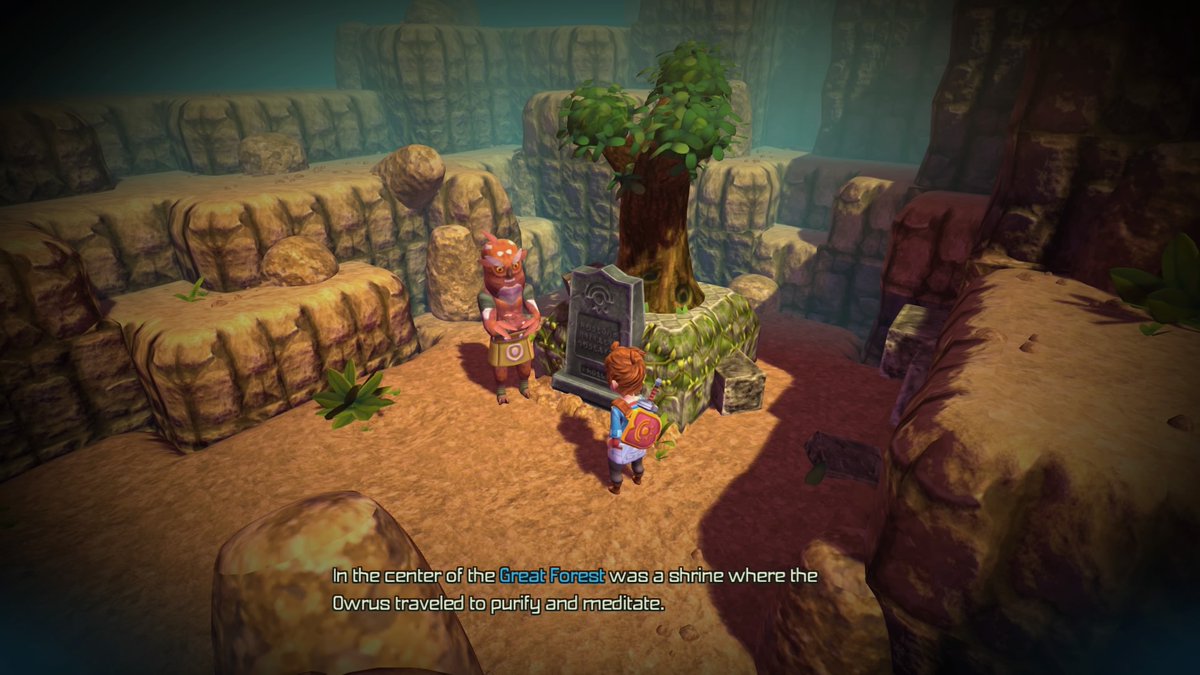
-
Oceanhorn: Monster of Uncharted Seas
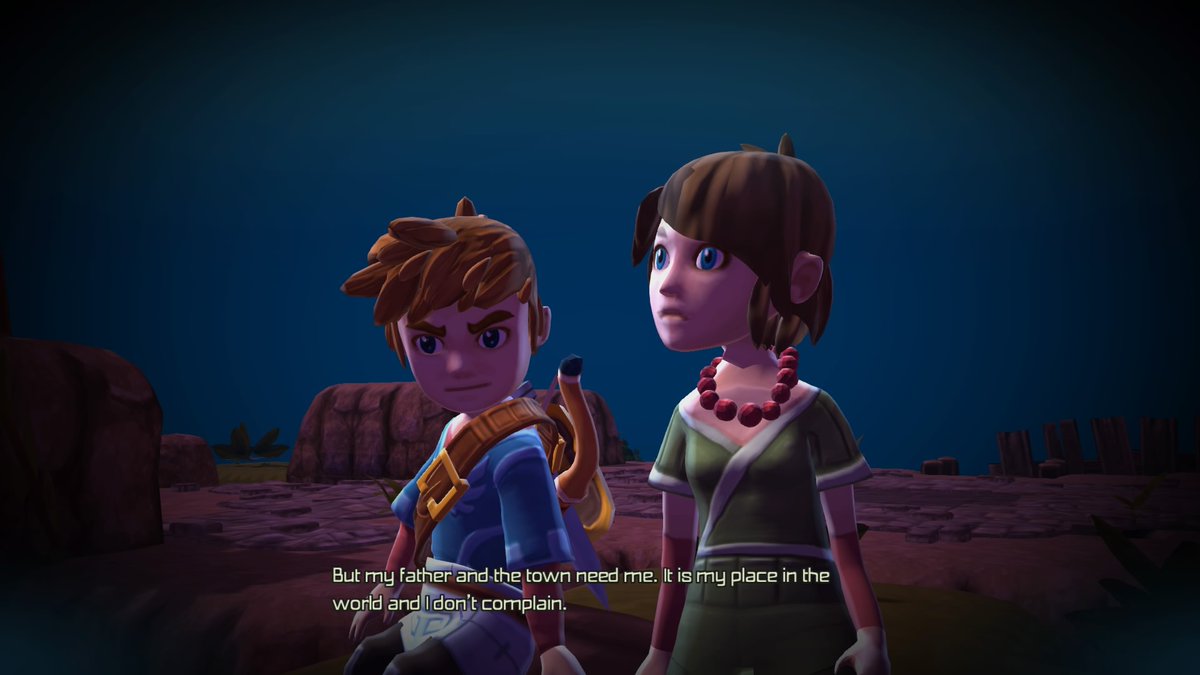
-
Oceanhorn: Monster of Uncharted Seas
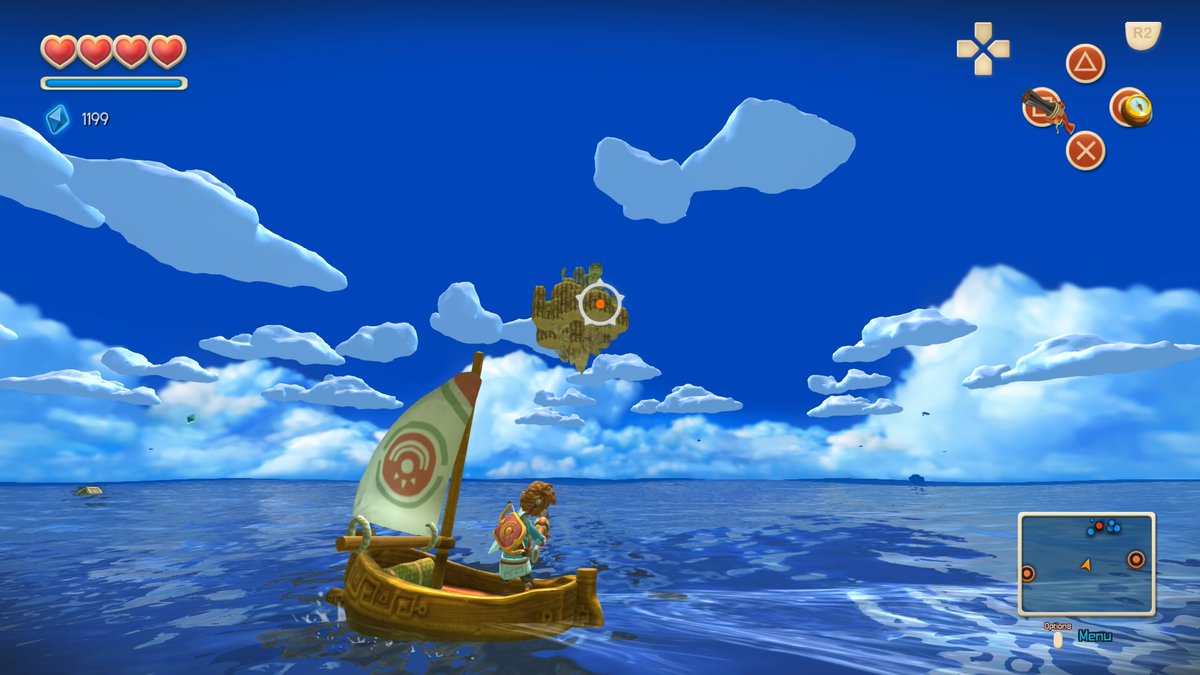
-
Oceanhorn: Monster of Uncharted Seas
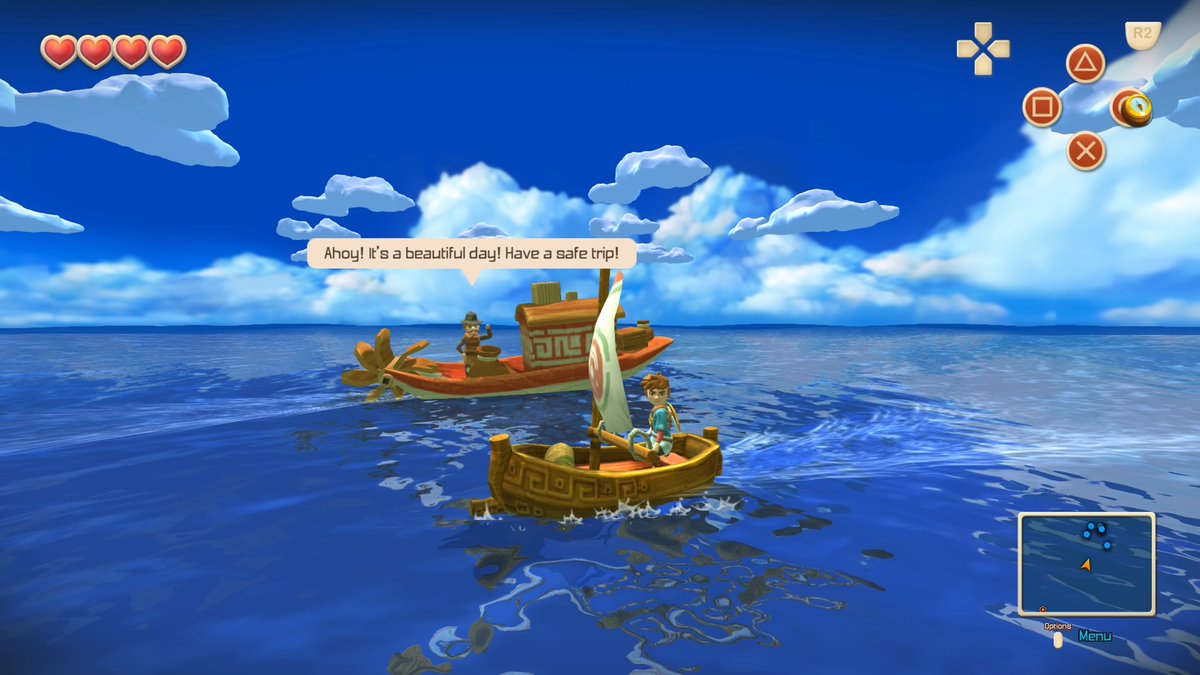
-
Oceanhorn: Monster of Uncharted Seas
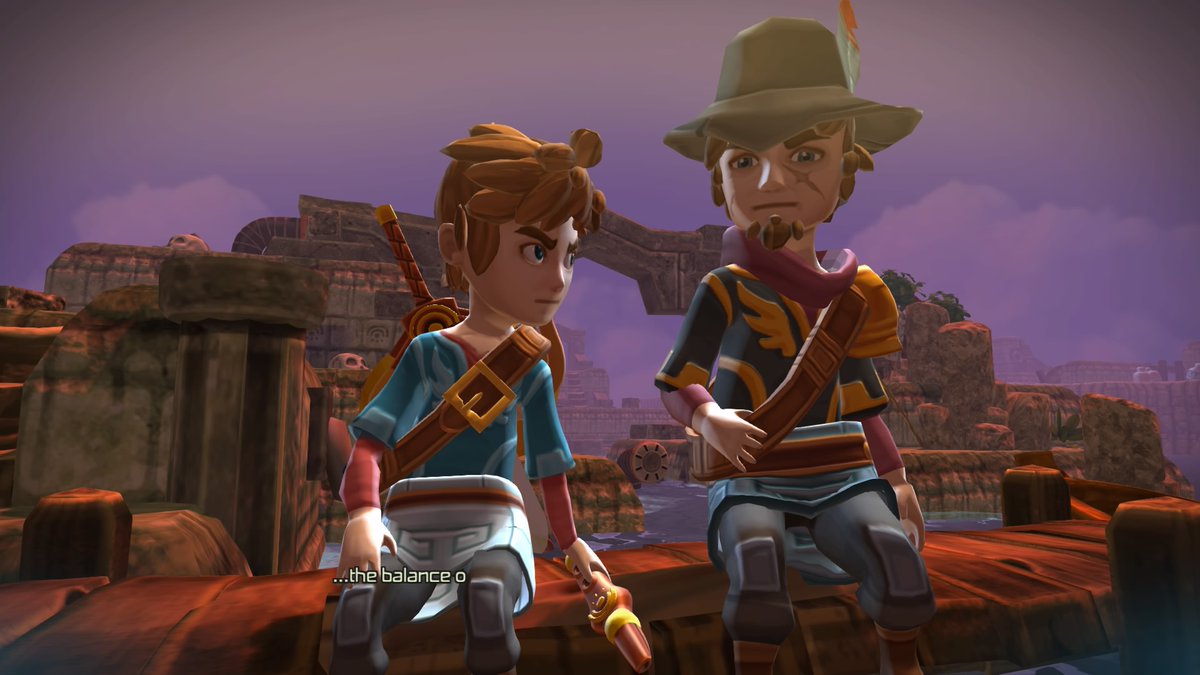
-
Oceanhorn: Monster of Uncharted Seas
